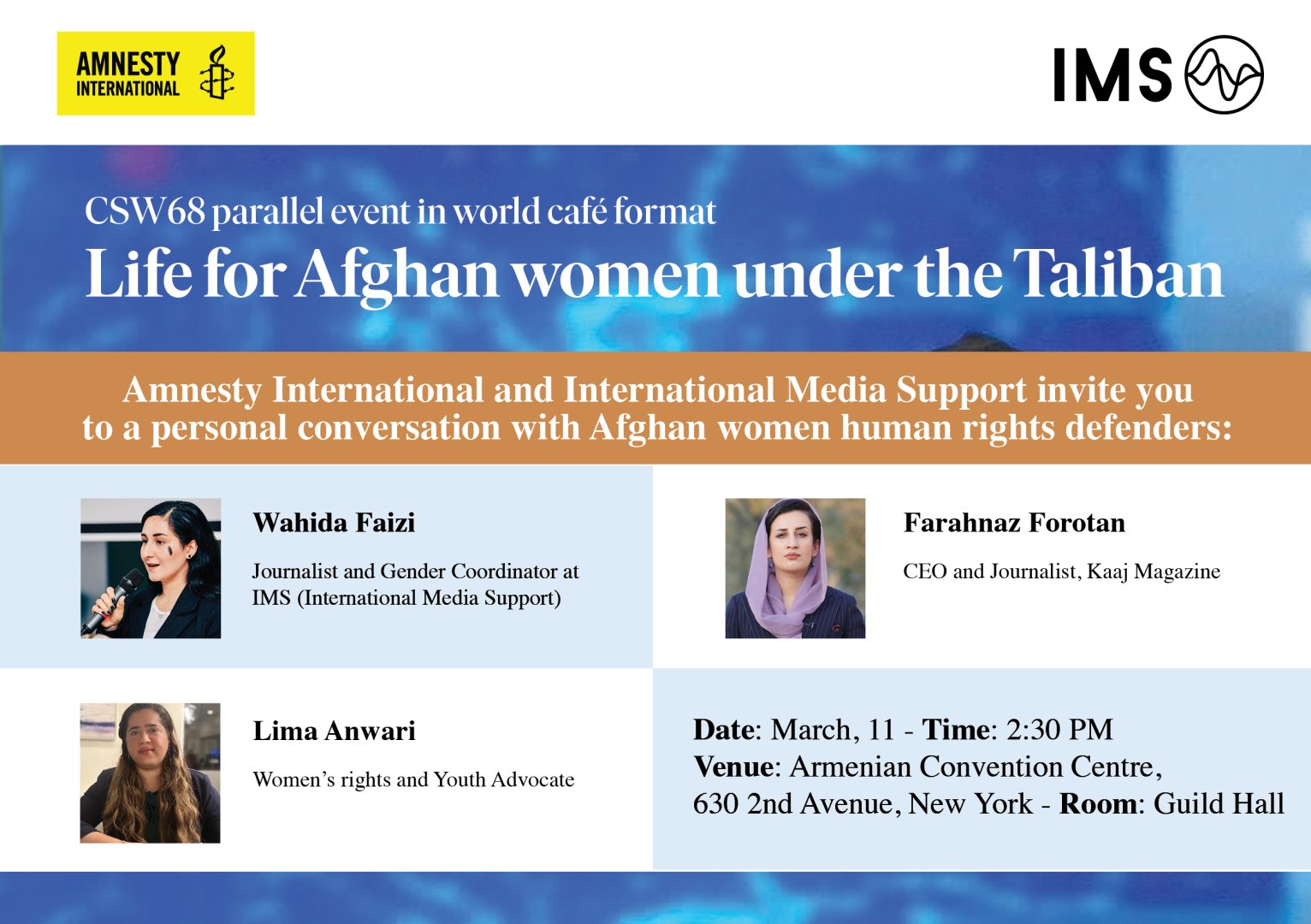
Photo: TOLO News, Afghanistan 2022
Luckily, there are still women journalists resisting the oppression and courageously persisting in producing media content.
International Women's Day 2024
For women journalists in Afghanistan, showing up for work is an act of resistance!
In Taliban’s Afghanistan, women’s participation in the media – both as journalists and sources – have been put under heavy pressure. Luckily, there are still women resisting the oppression and courageously persisting in producing media content.
The media plays a crucial role in challenging the gender norms and stereotypes that are root causes of gender inequality. By providing the public with women role models, women voices, and women perspectives, the media facilitates that women can become an active part of society. It also plays a key role in ensuring women’s access to information, educating women about their rights to social protection, investigating violations of women’s rights and holding decision makers accountable for providing social protection, public services, and infrastructure for gender equality.
But in Taliban’s Afghanistan, women’s participation in the media – both as journalists and sources – have been put under heavy pressure. Women are no longer allowed to study journalism at university. Women journalists cannot attend press conferences, report from the scene of events or interview the Taliban. Women journalists that still work in the media are obliged to cover their faces.
In 2022, the Afghan National Journalists’ Union (ANJU) conducted a survey on the situation of women
journalists, and found that:
● 87% of women journalists have experienced gender discrimination during the Taliban regime.
● 60% of women journalists have lost their jobs and careers.
● 79% of women journalists said they have been insulted and threatened under the Taliban regime,
including physical threats, abuse by Taliban officials, and written and verbal threats.
● 91% of working women journalists were the sole economic support of their families.
● 87% of women journalists are not motivated to work in the current situation due to fear.
Luckily, there are still women journalists resisting the oppression and courageously persisting in producing media content. These journalists take tremendous risks for their lives and need the support of the international community.
In fact, before the Taliban takeover in August 2021, there were 1400 women journalists in Afghanistan. Two years later, only 400 remained. But today the number of women journalists has increased – and local research undertaken early in 2024 have found that there are currently almost 600 active women journalists.
While the number of women in the media has increased, the challenges they face on a daily basis continues. In addition to severe economic hardship, women media workers also struggle with deteriorating mental health.
Access to information is another major challenge for women working in media since the de facto authorities repeatedly barre women journalists from participating in news conferences, accessing scenes of incidents, etc. In addition to this, official spokespersons do not respond to phone calls of women journalists and, in many cases, do not grant interviews to women journalists.
New York event March 11th

International Media Support (IMS) has been active in Afghanistan for more than 20 years, with a particular focus on promoting and enhancing the safety of media content producers, and to ensure access to reliable information for the people in Afghanistan.
The programmes are attentive towards gender balance and minorities, founded on the strong belief in the importance of enabling women and members of marginalized groups to participate equally and freely in the media as an integral part of democratic development.




